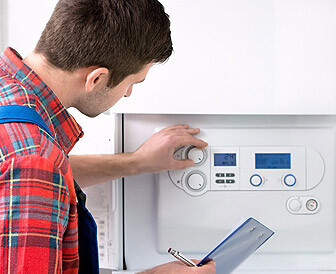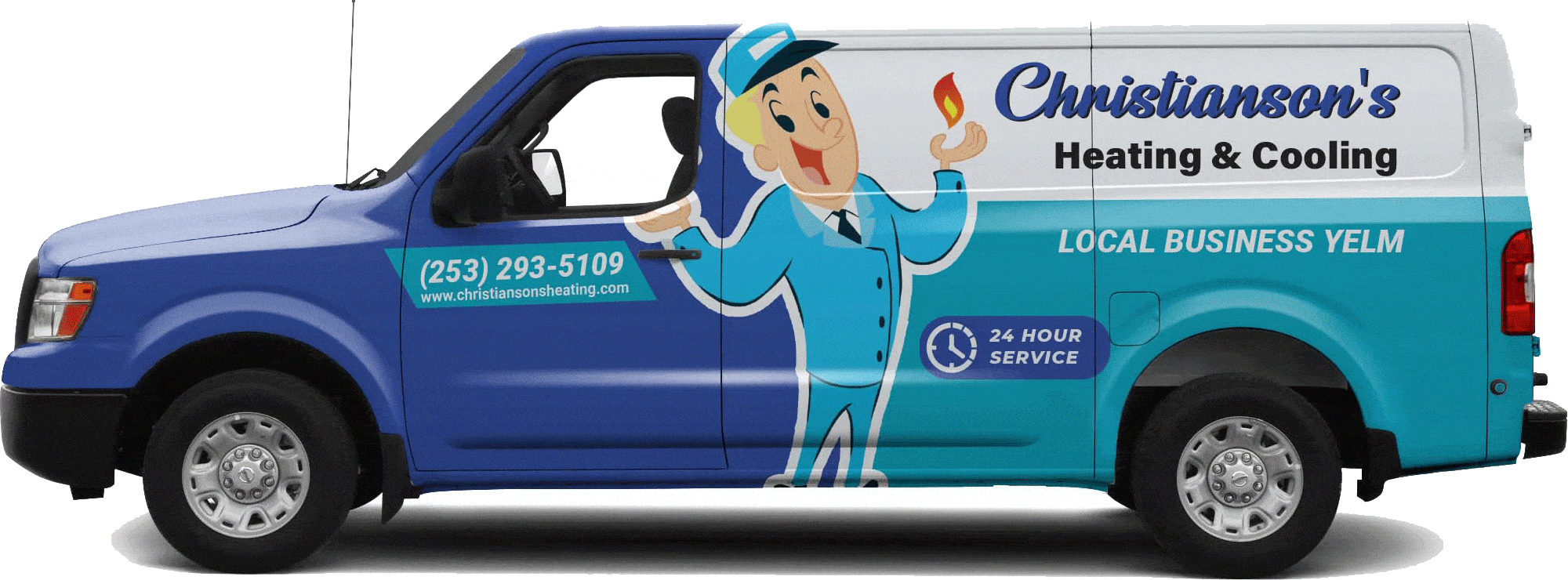
Indoor Air Quality
Humidity, allergies, and mold, my goodness!
You still have options if you haven’t been able to combat humidity, allergies, and mold in your home after you have loaded it up with Himalayan Salt lamps, tissue box fans and fan boxes.
You can also find other indoor air quality guides on the internet that recommend opening windows or doors to let in fresh air. Although it is important to try to get fresh, clean air throughout the year, this may not always be possible. What can you do if the indoor air is more polluted that the outside air?
You can improve the air circulation in your home even when it is cold outside. The good news is that you might already have the items you need.
Your HVAC system has an impact on more than the temperature in your home. Your HVAC system can also be used to address problems with indoor quality.
Christianson's Furnace & AC Repair works with hundreds of homeowners every year to improve their home's air quality. This could include repairing or adding equipment to their HVAC system.
It's up you to choose which option is best for you. My job is to inform you about all your options.
This article will discuss a variety of ways to improve the air quality in your home. You won't need additional tools or materials for some of these. Others may be able to help you address your specific air quality needs.
1. Increase air circulation
Improving air circulation in your home can improve indoor air quality (IAQ).
Polluted or dusty air
Humidity in the air
Temperatures that are not even
Modern thermostats have either an "auto" switch and "on" switch. Some also have a button that has a fan icon to allow you to toggle between settings. This controls your fan and blower motor .
Your blower motor will circulate conditioned air throughout your house year-round. Your fan will only circulate air if your furnace, heat pump or air handler are running when it is on "auto".
If you turn your fan on, your blower will continue to run even if your HVAC system isn’t heating or cooling your house. This allows for air to circulate more often in your home. This can even out the temperature in your home, even in hot upstairs rooms.
Improved air circulation means your HVAC system filters your air more often, which is great news for people with allergies or asthma.
Although we recommend that your blower be run at all times, it may not always feel comfortable. Your blower can only circulate ambient air if it isn't running. This can cause you to feel a bit cold when the air comes out of your vents.
However, constant air circulation may not be comfortable for you. We recommend that you let your blower run as long as possible to alleviate some of these problems.
2. Make sure your HVAC filters are checked
If not properly maintained, your HVAC system's filters can adversely affect indoor air quality.
You can reduce airflow
Neglecting to capture harmful particulates
Your HVAC filter is responsible for removing dust, debris, and allergens from your home's air.
Your filter will collect particulates and eventually get dirty. It is important to change your filter regularly.
You may need to change your filter once a month, or every month depending on which filter you use. The packaging of your filter can provide insight. You may have to replace your filter more often than what the packaging suggests.
These recommendations are based upon laboratory results. Your home's conditions will likely be different.
You may notice a decrease in airflow from your vents. It is time to replace your filter.
Your HVAC system is important. Your HVAC system will get dirtier the longer it sits. It can get clogged if you wait too long to change your filter. Clogged filters can cause serious damage to your system.
You can improve the air flow throughout your house by changing your filters.
img alt="A homeowner installs a four-inch filter in his HVAC system."
However, increased air circulation can lead to a buildup of harmful particulates in the air.
Although most filters can remove larger particles from the air, not all filters are capable of capturing smaller particles such as pollen and pet dander. For people with allergies, this can be especially difficult.
This is not something you need to be able to do - there are many types of filters today.
Since the 1950s, one-inch filters have been the norm. However, many one-inch filters do not catch larger particles.
Fire & Ice includes four-inch media filters in every furnace we install. Four-inch filters can capture particles as small as and HTML0.3 microns.
Some examples of particles that a filter of four inches can capture:
Bacteria
Pet dander
Pollen
Mold spores
Soot
Switching to a different filter may be beneficial for those with asthma or allergies.
If you are experiencing persistent cooking or pet odors, switching to a different filter may be an option.
This article will help you determine the best filter for your needs. It also provides information about the different filters available and their effects on your home.
3. Make sure you schedule regular maintenance for your HVAC system
While maintenance is essential to ensure your system operates safely, regular maintenance can help you improve indoor air quality.
An HVAC technician will not only inspect your system for problems, but also fix them. A HVAC maintenance appointment includes not only a tune up for your furnace, heat pump, or air conditioner but also cleaning.
An HVAC technician should clear out any dust or debris from the furnace cabinet during a furnace tune up. The technician will also need to inspect your blower fan.
Most furnaces don't need to be cleaned extensively, but this depends on the specifics of your home. Your blower fan can become clogged with pet hair or lint. The blower fan is a device that controls air circulation throughout the year. This can cause problems with your cooling and heating systems.
An HVAC technician should inspect the condition of your compressor, condenser and evaporator coil during an air conditioner tune-up.
Heat pumps and air conditioners cool your home. They also remove moisture from your home's air. Both systems have condensate drainages. However, it is important to inspect heat pumps and air conditioners for any mold or bacteria buildup.
Your system may be circulating harmful air pollutants such as mold spores or bacteria if you notice unusual smells. To schedule an HVAC cleaning, contact your HVAC partner immediately.
4. HVAC Indoor Quality Products: Make an Investment
Sometimes, your HVAC system may need some help with indoor air quality. Your HVAC partner can help you add IAQ products to improve your comfort and health.
HVAC indoor quality products include:
Humidifiers
Dehumidifiers
Air purifiers
Checking & Maintenance
Contact the Yelm air quality specialists at Christianson's Furnace Repair and A/C Repair if you are:
- You and your family members are often sick
- Sinus congestion and headaches are common symptoms.
- Your home is a hotbed of allergy and asthma symptoms.
- Dry skin is common
- Dry eyes, nose and throat can cause irritation.
- You feel uncomfortable in your home.
These problems could indicate that your indoor air quality needs to be assessed. Christianson's Furnace Repair team is dedicated to helping you and your family enjoy indoor comfort. We can assess your air quality and recommend the best systems to improve it. The equipment can be installed quickly.
Air Purifiers & Filters
There are many types of air purifiers and filters available today to improve the air quality. These systems eliminate harmful particles from your indoor air and make it healthier. We can help you to install great systems to improve the indoor air quality of your home and make it healthier.
We can help you install:
- HEPA air filters
- Basic air cleaners
- Activated carbon filters
- UV filters
Our Yelm indoor air quality technicians will assess your home and make recommendations about the best products for you. We offer upfront pricing and will never sell you systems you don't require. We pride ourselves on providing exceptional customer service. We won't be satisfied until the job is done correctly. Our experts have years of experience and only use high-quality equipment and materials to improve your home's indoor air quality. Get in touch today to learn more about our services and how we can make your house a more comfortable and pleasant place.
Call (253) 293-5109 for more information or to make an appointment.



